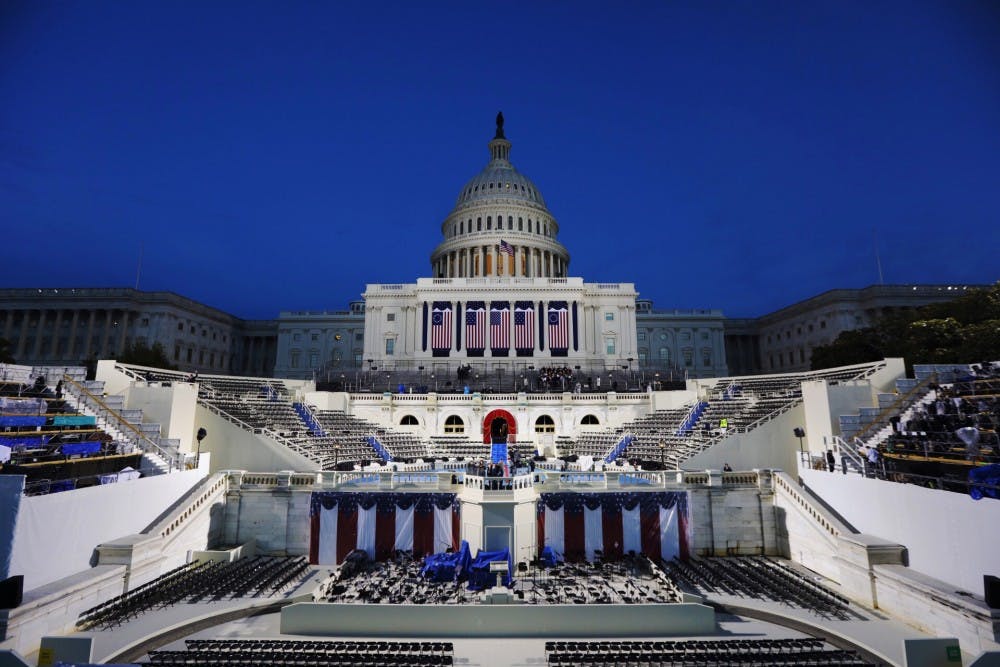The nation watched as the historic handover of power from Barack Obama to his successor unfolded at the inauguration of President Donald Trump on Jan. 20.
The event followed a campaign characterized by controversy and protests, and Trump’s speech set the tone for the way in which he hopes to serve the American people during his term.
“Today's ceremony … has very special meaning because today we are not merely transferring power from one administration to another or from one party to another, but we are transferring power from Washington, D.C. and giving it back to you, the people,” Trump said.
Charles Bierbauer, dean of the College of Information and Communications and former CNN senior White House correspondent during the Reagan and Bush administrations, shared his perspective on the inauguration.
“It’s an important day because this is a constitutionally prescribed process in handing power from Obama to Trump … There’s never been a president who refused to leave and had to be picked up in his pajamas and slippers and carried out of the White House,” Bierbauer said.
Many felt the most notable part of the day was Trump’s straightforward and impactful speech.
“I thought it was a speech that spelled out an agenda. It wasn’t a feel-good speech in any way, shape or form. In fact, it was in a lot of ways a speech that said, 'We’re in bad shape,'” Bierbauer said. "There was not a lot of, 'This is good,' but a lot of, 'This is bad, and we're going to change it.' There was an agenda there, but not a lot of specifics. I thought it was rhetorically rather harsh, talking about carnage.”
Some USC students had the opportunity to attend the inauguration as a part of the Honors College Washington Semester Program.
“There were strong emotions on both sides … I just wanted to see my first presidential inauguration regardless of whether or not I voted for him,” said Audrey Ware, a second-year international business and marketing student.
The students remained cautious because of the protests that became violent.
“While the protests were really great and necessary … there was a feeling of unease all around the city. We stayed in on Friday night because we weren’t sure what was going to happen,” said Sara Wallam, a second-year biochemistry and molecular biology student.
Although many associate Trump with his confrontational tweets and aggressively publicized candidacy, Bierbauer is interested in what he will do next and believes as Ronald Reagan said the oval office transforms people.
“So when Donald Trump leaves the Capitol and goes back to the White House today, is he gonna look around and say, 'This is different, I now have different responsibilities apart from all the words that have been uttered and the tweaks that have been issued and what have you.' The burden has now shifted,” Bierbauer said.
A Supreme Court nomination can be expected as one of Trump’s first actions as president, but he will have to adjust to his new position.
“One of the things that Trump is sure to discover is that no matter what you say on day one, there's only so much that you can do, and the process has to move forward. He has the benefit of party control of both houses, and so he ought to be able to move legislation forward, but it’s not going to be everything he wants,” Bierbauer said.

